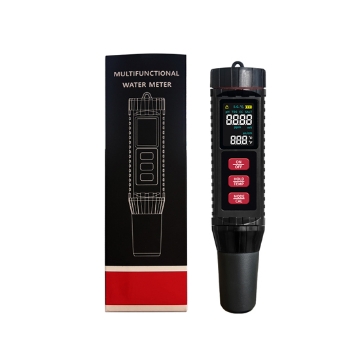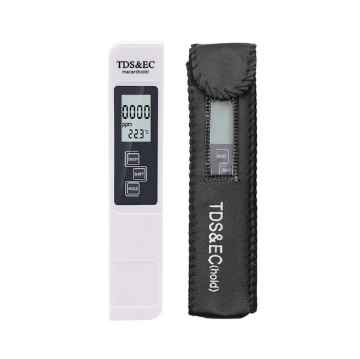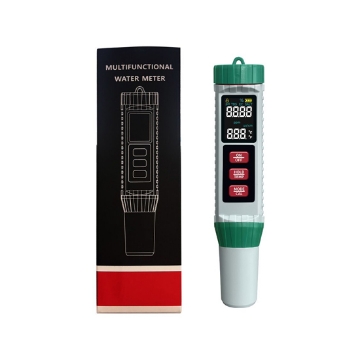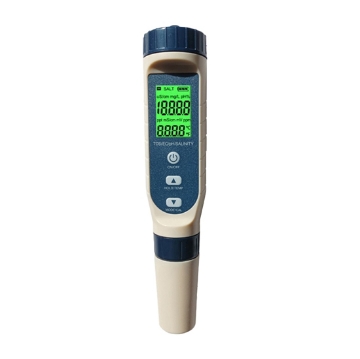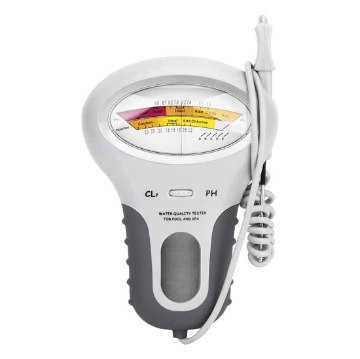Water Quality Testers
2 in 1 Digital Handheld Water Quality Tester
5 in 1 Portable Water Quality Tester
7 in 1 Multifunction Water Quality Tester
Digital Chlorine Meter for Pool
Digital TDS & EC Water Quality Tester
Digital Water Quality Tester for pH/Chlorine
Digital Water Quality Tester for PH/TDS/Temp/EC/Salt
Digital Water Quality Tester for PH/Temperature/EC
Electronic LCD Water Quality Tester
Electronic pH & Chlorine Water Quality Tester
Handheld Water Quality Tester for pH/TDS/EC/TEMP
Multifunction Water Quality Tester for Drinking Water/Aquarium/Pool
Portable Digital Residual Chlorine Meter
Water Quality Tester for Drinking Water
Home Water Quality Tester for EC/Temperature
Portable Home Water Quality Tester for TDS/EC/Temperature
Digital Water Quality Tester For Colority Detection
4 in 1 Digital Water Quality Tester
Water Quality Tester is an instrument used to detect various chemical and physical properties of water. It is widely applied in environmental monitoring, water treatment plants, agricultural irrigation, laboratory research, and other fields. Water quality testing typically includes detecting parameters such as temperature, pH, dissolved oxygen, conductivity, turbidity, hardness, heavy metals, nitrogen, phosphorus, and more. Based on the testing range and precision, water quality testers come in various types.
Common Water Quality Testing Parameters
- pH: The acidity or alkalinity of water, affecting chemical reactions in water.
- Dissolved Oxygen (DO): The oxygen content dissolved in water, crucial for aquatic life.
- Conductivity (EC): A reflection of dissolved ion concentration in water, often used to assess water's mineralization.
- Turbidity: The concentration of suspended particles in water, directly affecting its clarity.
- Hardness: The concentration of calcium and magnesium ions in water, affecting soap performance and scaling in pipes.
- Nitrogen and Phosphorus Levels: Such as ammonia nitrogen (NH₃), nitrate (NO₃⁻), phosphate (PO₄³⁻); excessive nitrogen and phosphorus cause eutrophication in water bodies.
- Heavy Metals: Concentrations of harmful substances like lead, mercury, arsenic, affecting water quality and ecological safety.
Chemical Oxygen Demand (COD) and Biochemical Oxygen Demand (BOD): Indicators of organic pollution in water.
Working Principles of Water Quality Testers
Water quality testers operate based on different testing methods depending on the parameters being measured. Below are the working principles of common types of water quality testers:
- pH Tester: Measures the concentration of hydrogen ions in water using a glass electrode. The electrode generates a potential difference when reacting with hydrogen ions, which the instrument uses to calculate the pH value.
- Dissolved Oxygen (DO) Tester: Measures oxygen concentration in water using polarographic or galvanic methods. Both methods generate electrical currents when oxygen is reduced at the electrode surface, with current strength proportional to oxygen concentration.
- Conductivity Tester: Measures the concentration of ions in water by detecting the current between electrodes. The conductivity is directly proportional to ion concentration in water.
- Turbidity Tester: Based on the light scattering principle, this tester emits light and measures the amount of light reflected from suspended particles in the water. The greater the light scattering, the higher the turbidity.
- TDS Tester: Estimates the total dissolved solids by measuring water's conductivity, as conductivity is proportional to TDS.
- Colorimetric Testing: Used to detect chemicals like ammonia nitrogen and phosphorus. The reagent reacts with the sample to produce a color change, and the instrument measures the intensity of the color to calculate the concentration.
- Heavy Metal Tester: Uses Atomic Absorption Spectroscopy (AAS) or electrochemical analysis to measure the absorption of light or current changes caused by heavy metals in the water.
Applications of Water Quality Testers
Drinking Water Monitoring: Used to monitor water quality in drinking water treatment plants, ensuring pH, dissolved oxygen, heavy metals, bacteria, chlorine, and other indicators meet safety standards.
Water Treatment Industry: Helps real-time detection of pollutants like Chemical Oxygen Demand (COD), Biochemical Oxygen Demand (BOD), ammonia nitrogen, ensuring wastewater discharge meets environmental protection standards.
Environmental Monitoring: Used to monitor the quality of rivers, lakes, groundwater, and marine water bodies, assessing pollution levels and helping in water resource management and protection.
Agricultural Irrigation: Monitors irrigation water quality, ensuring water parameters like salinity, pH, and dissolved oxygen are suitable for crop growth and avoid crop yield impacts due to water quality issues.
Aquaculture: Monitors dissolved oxygen, pH, ammonia nitrogen, etc., in aquaculture ponds to ensure a safe environment for aquatic animals and prevent losses due to water quality problems.
Industrial Applications: Used in industries such as pharmaceuticals, food processing, power generation, and chemicals, to monitor the quality of industrial water and prevent water pollution from affecting production processes.
Research and Laboratory Analysis: Used in water quality research and environmental science experiments for accurate analysis of various chemical components in water, supporting academic research and experimental data collection.
Home Use: Portable water quality testers allow households to check if their tap or well water meets safety standards, ensuring safe drinking water.
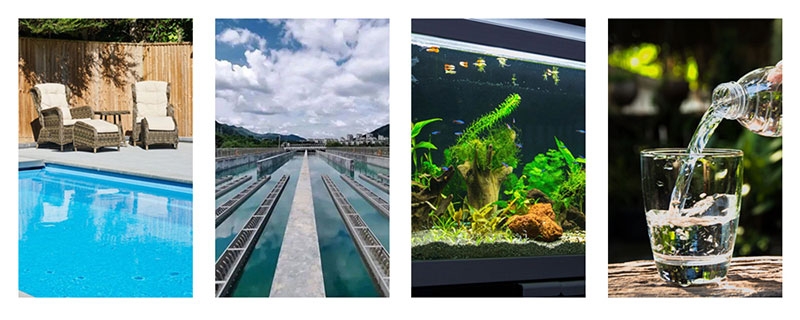
Water quality testers are essential tools for ensuring the safety of water sources and bodies. By accurately monitoring various water quality parameters, they assist scientists, engineers, and environmental professionals in making informed decisions and ensuring water meets health and environmental standards. As technology advances, water quality testers are becoming more precise, multifunctional, and increasingly user-friendly, making water quality testing more efficient, convenient, and accurate.



